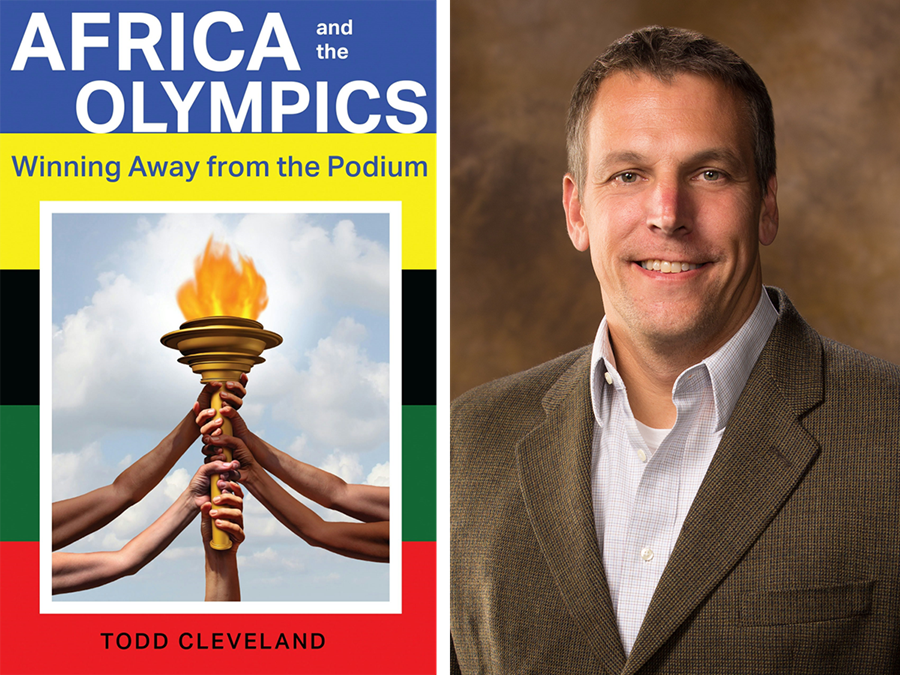Todd Cleveland recently published a new book titled Africa and the Olympics: Winning Away from the Podium, with Ohio University Press. The book reconstructs the ways that various African actors have achieved an array of nonsporting victories associated with the Olympics and examines how they have used the Olympic Games to engage in transformative political activity, realize social mobility and enhance the quality of life for individuals, communities and entire nations.
In tracing these historical and contemporary processes and the motivations that underlie them, the book complicates reductive notions of the Olympics as solely a sporting competition and instead considers Africa's engagement with the Olympic Games as a series of opportunities to improve personal, communal, ethnic, national and even continental plights.
At the 2020 Tokyo Olympic Games (held in 2021 due to COVID-19) and again at the recently concluded 2024 Paris Games, the 54 African countries that participated finished these tournaments with the lowest medal hauls for any continent, continuing a historic trend since the inception of the modern Olympic Games in 1896. Reflecting this relative lack of sporting success, African Olympians — aside from elite Kenyan distance runners — rarely register in the minds of even the most dedicated followers of the Olympic Games. Yet for all their seeming invisibility on the Olympic landscape, African states, athletes and officials have long been "winning" at the Olympics, albeit often far removed from the medal podium.
If few sports fans have thought extensively about Africa and the Olympics, scholars have been only slightly more engaged with the subject. Most of this scholarship focuses on the International Olympic Committee's ban of apartheid South Africa from 1964 to 1988. Other works that consider the Olympics more broadly tend to deal with Africa only summarily, further reducing its already low profile. As a result, the academic literature resembles a patchwork of circumscribed studies dispersed in a range of fields and disciplines. Not since the publication of Africa at the Olympics almost 50 years ago has a single volume featured a comprehensive history of the continent and the games. This book both updates and expands previous work and, most importantly, reframes the analytical engagement with this topic.
Caree Banton, chair of the Department of History, commended Cleveland for his exceptional research skills and remarkable productivity in publishing high books. "Dr. Cleveland is indeed a prolific researcher," she said. "His prestigious contributions to the department have been outstanding, and we salute him for continuing to uphold this impressive standard."
Topics
Contacts
Melinda Adams, administrative specialist III
Department of History
479-575-2096,
